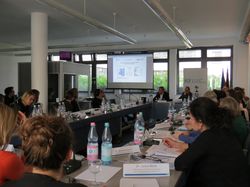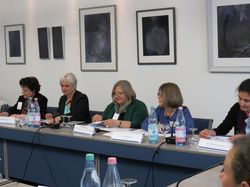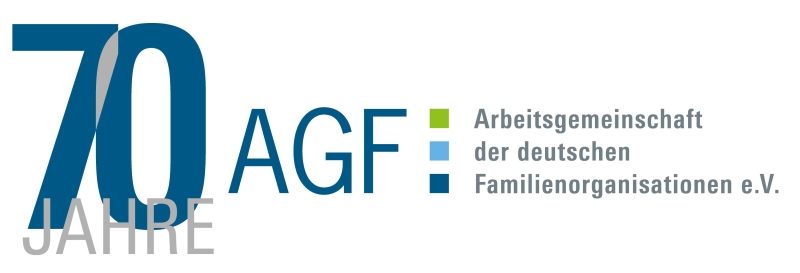
On Tuesday, 17 June ca. 35 european experts met on invitation of AGF to discuss the implementation of a so-called “family time policy” in different european states. They had a close look on the examples of Germany, the “Benelux”-states as well as the nothern states. Additionally an important pace-setter for family time was set into focus: a comparison of measures for reconciling work and family life.
In Germany, “time” has been recognized as crucial criteria for the well-being of families at least since the publication of the government’s Seventh Family Report “Families between flexibility and dependability” in 2006. The report stated family policy to be made up of the three elements time policies, development of infrastructures and monetary support. The following Eighth Family Report in 2012 focused particularly on the dimension of time, leading to an increasing focus on the factor “time” in the public discussion of family politics (“Time is a key currency for modern family policy”).
Against this background the expert meeting will focus on the question whether family time policy is also part of the discussions in other EU member states, and in case it is, under which implications.
Guiding Questions:
- Is family time policy a matter of discussion in other European member states? If so, what are the approaches and how are the policies implemented?
- Can common developments of family time policy be discerned across Europe?
- Which significance does the dimension “time” have within family policy in the different EU states? How is the significance of the dimension time expressed? If time plays no significant role, what are the main approaches of the respective family policies?
- Are there political measures beyond the reconciliation of work and family life influencing families’ time significantly? If so, what have been the implementation approaches?
- What are the truly innovative aspects of a family time policy approach?
- Which policy measures have proven successful in reconciling the time balance of work and family life?
- Who is typically addressed by family time policy – only mothers, or fathers, too?
- Do other EU member states have insights regarding the consequences of part-time employment in the course of a lifetime – especially relating to poverty among the elderly?
A documentation of the event will be published on our website.
Programm
11.00 – 11.10h: Welcoming
Sven Iversen, Managing Director of Association of German Family Organisations (AGF) e.V.
11.10 – 11.30h: Time for families – opening the issue
Siegfried Stresing, Managing Director of Deutscher Familienverband (DFV) (German Family Association)
11.30 – 12.15h: Case study: Germany
Dr. Thomas Metker, Head of Division, Federal Ministry for the Family, Senior Citizens and Youth (BMFSFJ)
Input and Discussion
12.15 – 13.00h: Case study: Benelux
Fred Deven, International Network on Leave Policies & Research
Input and Discussion
13.00 – 13.45h: Lunch Break
13.45 – 14.30h: Case study: Scandinavia
Gerda Neyer, Stockholm University
Input and Discussion
14.30 – 15.45:h An important pace-setter for family time in focus:
Measures for reconciling work and family life – a European comparison
Daphne Ahrendt, Eurofound
Input and Discussion
15.45 – 16.00 h Conclusions
16.00 h Farewell and End
The expert meeting was simultaneously translated in German and English.







